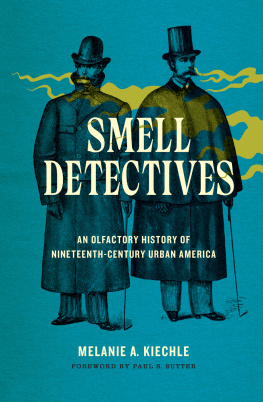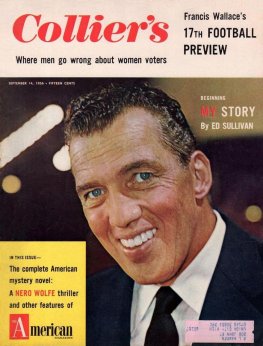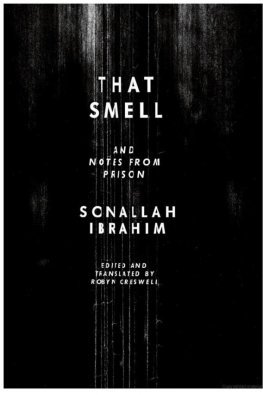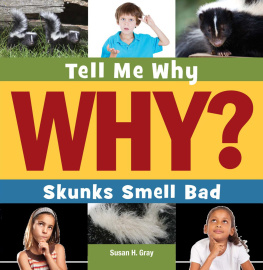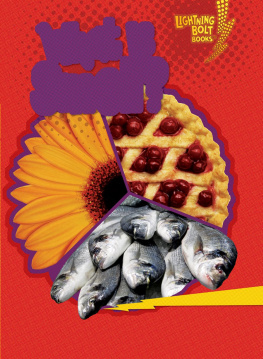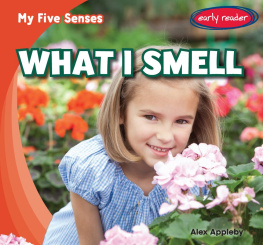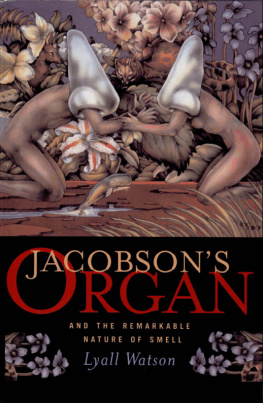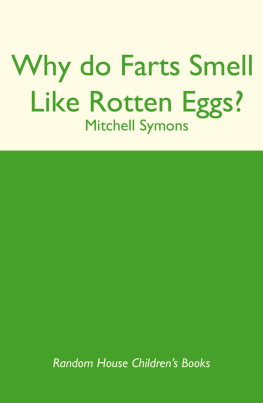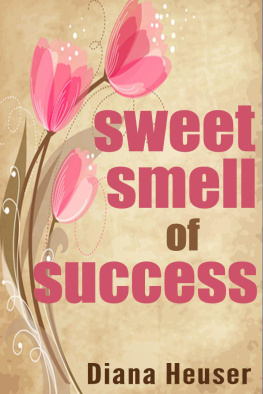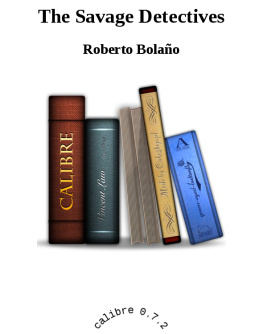Kiechle - Smell Detectives
Here you can read online Kiechle - Smell Detectives full text of the book (entire story) in english for free. Download pdf and epub, get meaning, cover and reviews about this ebook. year: 2017, publisher: University of Washington Press, genre: Politics. Description of the work, (preface) as well as reviews are available. Best literature library LitArk.com created for fans of good reading and offers a wide selection of genres:
Romance novel
Science fiction
Adventure
Detective
Science
History
Home and family
Prose
Art
Politics
Computer
Non-fiction
Religion
Business
Children
Humor
Choose a favorite category and find really read worthwhile books. Enjoy immersion in the world of imagination, feel the emotions of the characters or learn something new for yourself, make an fascinating discovery.
Smell Detectives: summary, description and annotation
We offer to read an annotation, description, summary or preface (depends on what the author of the book "Smell Detectives" wrote himself). If you haven't found the necessary information about the book — write in the comments, we will try to find it.
Smell Detectives — read online for free the complete book (whole text) full work
Below is the text of the book, divided by pages. System saving the place of the last page read, allows you to conveniently read the book "Smell Detectives" online for free, without having to search again every time where you left off. Put a bookmark, and you can go to the page where you finished reading at any time.
Font size:
Interval:
Bookmark:

WEYERHAEUSER ENVIRONMENTAL BOOKS
Paul S. Sutter, Editor
WEYERHAEUSER ENVIRONMENTAL BOOKS explore human relationships with natural environments in all their variety and complexity. They seek to cast new light on the ways that natural systems affect human communities, the ways that people affect the environments of which they are a part, and the ways that different cultural conceptions of nature profoundly shape our sense of the world around us. A complete list of the books in the series appears at the end of this book.
SMELL DETECTIVES
An Olfactory History of Nineteenth-Century Urban America
MELANIE A. KIECHLE
UNIVERSITY OF WASHINGTON PRESS
Seattle and London
Smell Detectives is published with the assistance of a grant from the Weyerhaeuser Environmental Books Endowment, established by the Weyerhaeuser Company Foundation, members of the Weyerhaeuser family, and Janet and Jack Creighton.
Copyright 2017 by Melanie A. Kiechle
Printed and bound in the United States of America
Design by Thomas Eykemans
Composed in OFL Sorts Mill Goudy, typeface designed by Barry Schwartz
21 20 19 18 175 4 3 2 1
All rights reserved. No part of this publication may be reproduced or transmitted in any form or by any means, electronic or mechanical, including photocopy, recording, or any information storage or retrieval system, without permission in writing from the publisher.
University of Washington Press
www.washington.edu/uwpress
Library of Congress Cataloging-in-Publication Data
Names: Kiechle, Melanie A., author.
Title: Smell detectives : an olfactory history of nineteenth-century urban America / Melanie A. Kiechle.
Description: Seattle : University of Washington Press, [2017] | Series: Weyerhaeuser environmental books | Includes bibliographical references and index.
Identifiers: LCCN 2016048034 | ISBN 9780295741932 (hardcover : alk. paper)
Subjects: LCSH: SmellUnited StatesHistory19th century. | OdorsHistory19th century. | SmellEnvironmental aspectsHistory19th century. | Urban health.
Classification: LCC QP458 .K54 2017 | DDC 612.8/6dc23
LC record available at https://lccn.loc.gov/2016048034
Portions of were previously published in Melanie Kiechle, Navigating by Nose: Fresh Air, Stench Nuisance, and the Urban Environment, 18401880, Journal of Urban History 42, no. 4 (2016): 75371.
The paper used in this publication is acid-free and meets the minimum requirements of American National Standard for Information SciencesPermanence of Paper for Printed Library Materials, ANSI Z39.481984.
In memory of
CARL AND HELEN, ESTHER AND STANLEY,
who connected me to the past
CONTENTS
by Paul S. Sutter
FOREWORD
A Breath of Fresh Air for Urban Environmental History
PAUL S. SUTTER
Growing up on suburban Long Island in the 1970s, I distinctly remember a series of television ads that captured my environmental imagination. They were for the Fresh Air Fund, which sought (and still seeks) to temporarily remove underprivileged children from the inner city during the summer months and give them a vacation in the exurbs of New York. There they attended a summer camp or lived with a host family and enjoyed the environmental amenitiesgrassy swards, woods, lakes and streams, even working farmsthat were absent from the most desperate pockets of urban America. The nation experienced an environmental awakening during the 1970s, nowhere more so than in its leafy suburbs, but it also reeled from an urban crisis that had trapped poor people, and particularly people of color, in dirty, dangerous, and declining city neighborhoods. I did not then understand the deep structural forces that had produced such profound inequalities in the nations postwar residential geography, but as a child of the dawning environmental era I sensed that something was profoundly wrong with Americas cities if the only source of relief from the summer heat was an illegally uncapped fire hydrant. The promise of the Fresh Air Fund, to give needy city kids a chance to get back to nature, thus resonated with my juvenile sense of environmental justice. But I thought little about why fresh air sat at the heart of the organizations therapeutic promise, or even what fresh air was. In my household, fresh air was an unexamined environmental virtue, something that my parents constantly implored me to get more of instead of watching television. Fresh air was simply a metonym for the outdoors, for nature itself.
It turns out that fresh air has a history. The Fresh Air Fund was a century old by the 1970s, the most important and lasting of a series of so-called fresh-air charities that thrived in the United States at the dawn of the Progressive era. Founded in the late 1870s by Willard Parsons, a minister who had relocated from New York City to rural Pennsylvania, the Fresh Air Fund came along at a transitional moment in American thinking about the relationship between air quality and human health. Parsons had several motivations in starting his charity, but mostly he was concerned about the well-being of poor and immigrant children who lived in New York Citys teeming tenements. Parsons believed, as did many of his contemporaries, that cities were unnatural places that retarded human development. He worried in particular about tuberculosis and other diseases that seemed to spread easily in cramped indoor spaces (Robert Koch was still several years away from discovering the tubercle bacillus), and he believed that the supposed freshness and purity of rural air would improve the constitutions of city children, whose health suffered in sullied city air. In short, Parsons held tenuously to an older miasmatic notion that ill health was the result of bad air, and he fervently believed that the solution was fresh air.
Parsons fresh-air charity came into its own just as the germ theory was beginning to transform American medicine in ways that would obscure the older miasmatic meaning of the term. Americans came to understand that it was mostly microbes, unseen but very real disease agents, that made people sick. To the extent that bad air was a culprit, it was because of the microbes it containeddisease agents that bacteriologists scrambled to find and make visible through advanced technology and techniques. At the same time, the second industrial revolution, powered by coal, visibly degraded urban air quality and gave us our modern sense of air pollution: air filled with particulate matter, produced by combustion, that can be measured in parts per million. Such air could be a threat to public health, of course, but Americans did not understand it as causing disease in the older miasmatic sense. As a result, fresh air took on a vestigial quality in environmental discourse. It came to serve as a metaphor for the virtues of a new kind of outdoor recreation, a doctrine that juxtaposed the supposedly enervating, feminine, and overcivilized indoors of the modern city with the purportedly invigorating, masculine, and strenuous outdoors of the nations wild fringes. By the end of the Progressive era and into the interwar years, even as many urban Americans gasped for breath, fresh air came to obliquely symbolize the psychological promise of nature as a balm to soothe personal and societal ills. An older, more literal definition of fresh airair that was free from the foul odors that caused diseasewas lost to us.
Smell Detectives, Melanie Kiechles marvelous olfactory history of nineteenth-century urban America, restores that world to us in all its sensory richness. In the early to mid-nineteenth century, as American cities grew, they were filled with strong and offensive odors, many of them the result of concentrating humans and their economic activities within small geographical spaces. Urban Americans not only complained about these smells but understood them to be unhealthy. This can be a difficult concept to wrap ones head around because we are so inclined to think of odors as epiphenomenal, as sensations with no substantive causal effect or power. Sure, powerful odors can make us physically sick to our stomachs, but we do not see them as agents of disease. For most of the nineteenth century, however, bad smells were not merely clues that air was unhealthy; they were the substance of ill health itself. Kiechle shows us how ones sense of smell was critical to how one made sense of the nineteenth-century city in the most literal meaning of that phrase: how one experienced, mapped, navigated, and reformed urban America. It was in this crucible that fresh air first came to be a synonym for healthy air and a vital sanitary need. Indeed, one of the great achievements of
Next pageFont size:
Interval:
Bookmark:
Similar books «Smell Detectives»
Look at similar books to Smell Detectives. We have selected literature similar in name and meaning in the hope of providing readers with more options to find new, interesting, not yet read works.
Discussion, reviews of the book Smell Detectives and just readers' own opinions. Leave your comments, write what you think about the work, its meaning or the main characters. Specify what exactly you liked and what you didn't like, and why you think so.

